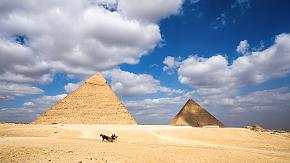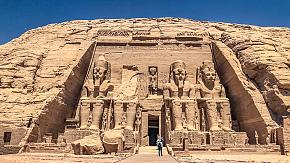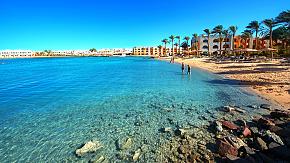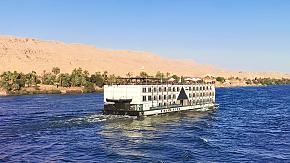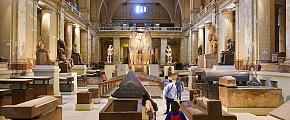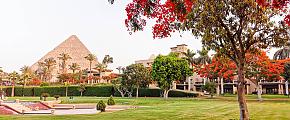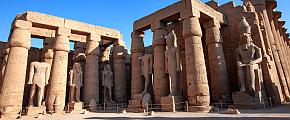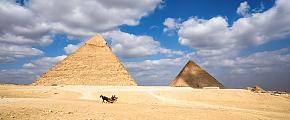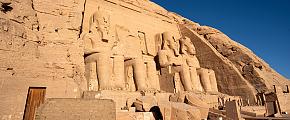10 Things You Should Never Do in Egypt
Egypt is an incredible destination that welcomes millions of visitors every year. However, to make the most of your trip and show respect for the local customs and traditions, it's important to be mindful of the cultural norms and taboos in daily life in Egypt. By respecting these cultural nuances, visitors can show their understanding and respect for the country, the local customs and its traditions, thus enjoying a more fulfilling and trouble-free journey. To equip you with some essential knowledge in this regard, we have put together 10 things that you should avoid doing on the tour to Egypt.
1. Do Not Climb on Ancient Artifacts, Pyramids, or Tombs
First of all, it can cause irreparable physical damage to the structures. Having endured thousands of years, these structures were susceptible to damage. The delicate nature of these structures makes it essential to handle them with care and avoid climbing on them, as even a small amount of damage can have significant consequences.
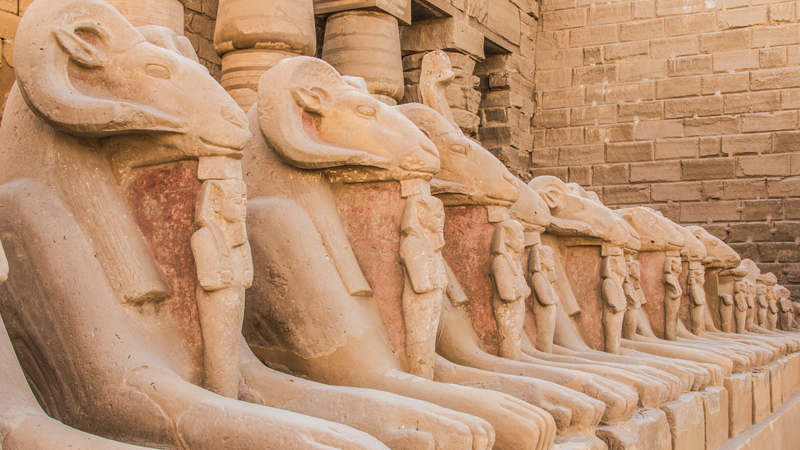 Karnak Temple
Karnak Temple
Furthermore, such behaviors can be seen as a sign of disrespect towards the cultural heritage of Egypt. These structures are not merely historical remains and treasures, but also iconic cultural and historical symbols of the land. Given such significance, climbing on or even defacing them can be seen as disregard and disrespect for Egypt's history and culture. By respecting these structures and treating them with care, tourists can show their appreciation for the rich cultural heritage of Egypt.
2. Do Not Disrespect Locals' Beliefs and Customs
Egypt is an Islamic country, and therefore, it is vital to respect Islamic culture and beliefs. Tourists should avoid making derogatory comments about Islam, its customs and practices, or any other religion. By being constantly mindful of their behavior, visitors can avoid causing offense to the local people.
For instance, shoes should be removed when entering homes or mosques in Egypt, and it is considered polite to accept an offer of slippers or sandals to wear inside. Also, many people in Egypt may refrain from eating or even drinking from sunrise to sunset during Ramadan. Fasting during Ramadan is one of the Five Pillars of Islam, which are the foundation of Muslim life, and therefore this is a time of great significance for many people in the country. As a visitor to Egypt during Ramadan, it's important to be respectful, such as avoiding public eating, drinking, or smoking during daylight hours. In a word, respect is the key to having a smooth travel experience in Egypt.
3. Do Not Show Too Much Public Display of Affection
Public display of affection is often considered disrespectful in Egypt because the culture in Egypt is generally more conservative and traditional than in some Western countries.
In Egyptian culture, there is a strong emphasis on modesty and respect, and public display of affection, such as hugging or kissing, is uncommon in Egypt. As a result, they can be viewed as an affront to these cultural values. Although public display of affection is not explicitly forbidden in Egypt, it is generally considered a good idea to avoid engaging in too much public display of affection in public, especially in more conservative areas of the country, such as rural or religious communities.
4. Do Not Drink Tap Water
You may be used to drinking tap water in your own country, but please don't do it in Egypt. Tap water can contain harmful microorganisms that can cause stomach upsets, which can ruin your trip.
Alternatively, it's recommended to drink bottled water or filtered water during your stay in Egypt. Bottled water is widely available in Egypt and can be purchased at supermarkets, shops, and hotels. When purchasing bottled water, it's important to make sure that the seal on the bottle is intact and that the water is from a reputable brand. If you have environmental concerns about bottled water, you can bring a portable water filter or simply boil the water before drinking it, which allows you to enjoy safe drinking water without producing any plastic waste.
5. Do Not Criticize Public Figures in Egypt, Especially Politicians
It's important to keep in mind that Egypt has a long history of political turmoil and instability. With a complex political landscape, discussions about political figures can be sensitive and controversial, especially if you are not well-acquainted with the politics in Egypt.
The fact is, Egypt has a complicated political system that includes a number of political parties and factions. It is often the case that public figures, particularly politicians, have ties with specific parties or factions. This means if you criticize or judge them, it can be interpreted as criticism of these groups, which might get you into unwanted trouble and misunderstandings. Apart from political figures, tourists should also be wary of discussing other public figures, such as religious leaders and Egyptian pharaohs who are revered by many people in Egypt.
6. Do Not Wear Revealing or Inappropriate Clothing in Public places, Particularly Around Religious Sites
This piece of advice is rooted in the cultural and religious norms of Egypt. As you might be aware, Egypt is a predominantly Muslim country, and modest dress is considered a sign of respect for Islamic traditions and practices.
In general, it is recommended that visitors to Egypt dress modestly and conservatively, especially when visiting religious sites such as mosques, churches, and temples. For women, it is advised to cover your shoulders, chest, and legs, and to wear loose-fitting clothing that does not cling to or reveal too much of your body. Men are advised to wear long pants and shirts that cover their shoulders, and to avoid wearing shorts or tank tops in public. It is also worth noting that shoes must be removed before entering mosques as a sign of respect for the holy place, so it is a good idea to wear slip-on shoes or sandals that can be easily taken off and put on. Although no law requires visitors to adhere to certain dress codes in Egypt, dressing modestly can help avoid unwanted attention and ensure a more pleasant experience.
7. Do Not Take Photographs of Locals Without Permission
The principle of respect for individual privacy and cultural norms matters wherever you are traveling. In the context of Egypt, taking photographs of locals without permission can be seen as disrespectful or even offensive, particularly in more conservative areas.
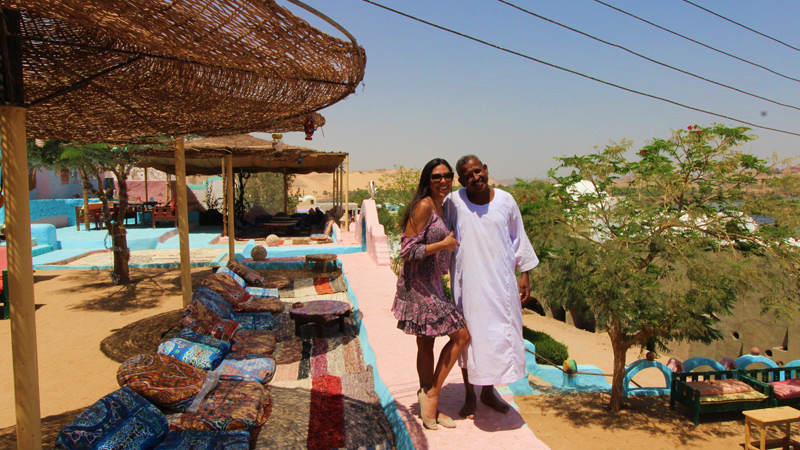 Get Permission Before Taking a Picture
Get Permission Before Taking a Picture
Many Egyptians, particularly women, may feel uncomfortable or violated if they are photographed without their consent. Even though you have no ill intentions at all, they could interpret the act as a form of harassment. In addition, taking photographs of military installations is strictly prohibited due to national security concerns. It is also worth mentioning that some tourist sites, such as museums or historical sites, may have rules or regulations regarding photography, so it is important to be aware of these restrictions and to follow them accordingly. Take the famous Giza Pyramids as an example, while visitors are allowed to take photographs of the pyramids from a distance, photography is prohibited inside the pyramids themselves. Some historical sites in Egypt would require visitors to purchase a special permit in order to take photographs.
8. Do Not Drink Alcohol in Public
Similarly, this tip has to do with the country's predominantly Muslim population and its conservative social norms. While alcohol is not strictly banned and can be consumed in designated places (such as licensed bars and restaurants), it is neither widely consumed in public nor is it socially acceptable.
As mentioned above, Egypt is a predominantly Muslim country, and consuming alcohol is considered a sin in Islam. Consequently, drinking in public is generally frowned upon, which is seen as disrespectful and offensive to the local culture and religion, and can potentially lead to unpleasant interactions with locals. Speaking of drinking, another word of advice is that visitors should also avoid excessive alcohol consumption and should not drink to the point of drunkenness. Not only is it a health threat, but it also impairs our judgment and puts people in risky situations.
9. Do Not Forget to Negotiate the Fare Before Getting into the Taxi
Many taxis in Egypt do not have meters, so it falls on the passengers to agree on a price with the driver before the ride begins. Failure to negotiate the fare beforehand can lead to overcharging, particularly for first-time tourists who may be unfamiliar with local prices and customs. When negotiating, remember to be polite but also be firm. If the driver is being unreasonable, it is okay to walk away and find another taxi.
To avoid falling victim to such exploitation, it's wise to use a taxi with meters installed, so that your fare can be calculated accurately and transparently. Alternatively, you can simply use Uber. Uber is available in several major cities in Egypt, including Cairo and Alexandria, and offers a convenient and safe way to get around free from the risk of overcharging or scams.
10. Do Not Forget to Tip the Service Staff
Tipping is common in Egypt and is considered a part of the culture, particularly in the hospitality and tourism industries. It is seen as a way of showing appreciation for good service and is expected in many situations, such as dining out, staying in hotels, or taking guided tours.
While tipping is not mandatory in Egypt, it is an important part of the local culture and supplements the income of service staff. When deciding how much to tip in Egypt, it is important to take into account the level of service provided. In general, a tip of 10-15% of the total bill is considered appropriate, but it can also vary depending on how satisfied you are. When leaving a tip, it is generally recommended to leave a cash tip directly to the service staff. Similar to the tipping practice in many countries, if there is already a service charge included in the bill, it is not necessary for you to leave an additional tip. But of course, you can still leave a tip on top of that if the service provided is exceptional!
Traveling to Egypt is an incredible experience full of history, culture, and adventure. However, it is important for tourists to be aware of the local customs and etiquette in order to avoid unintentional offense or misunderstandings. By following the general rules listed above, you can enjoy your time in Egypt while steering clear of trouble. If you want to have a wonderful journey in Egypt, please do not hesitate to contact us. Our travel experts will customize a personal itinerary for you, helping you create memories that you will cherish forever.

